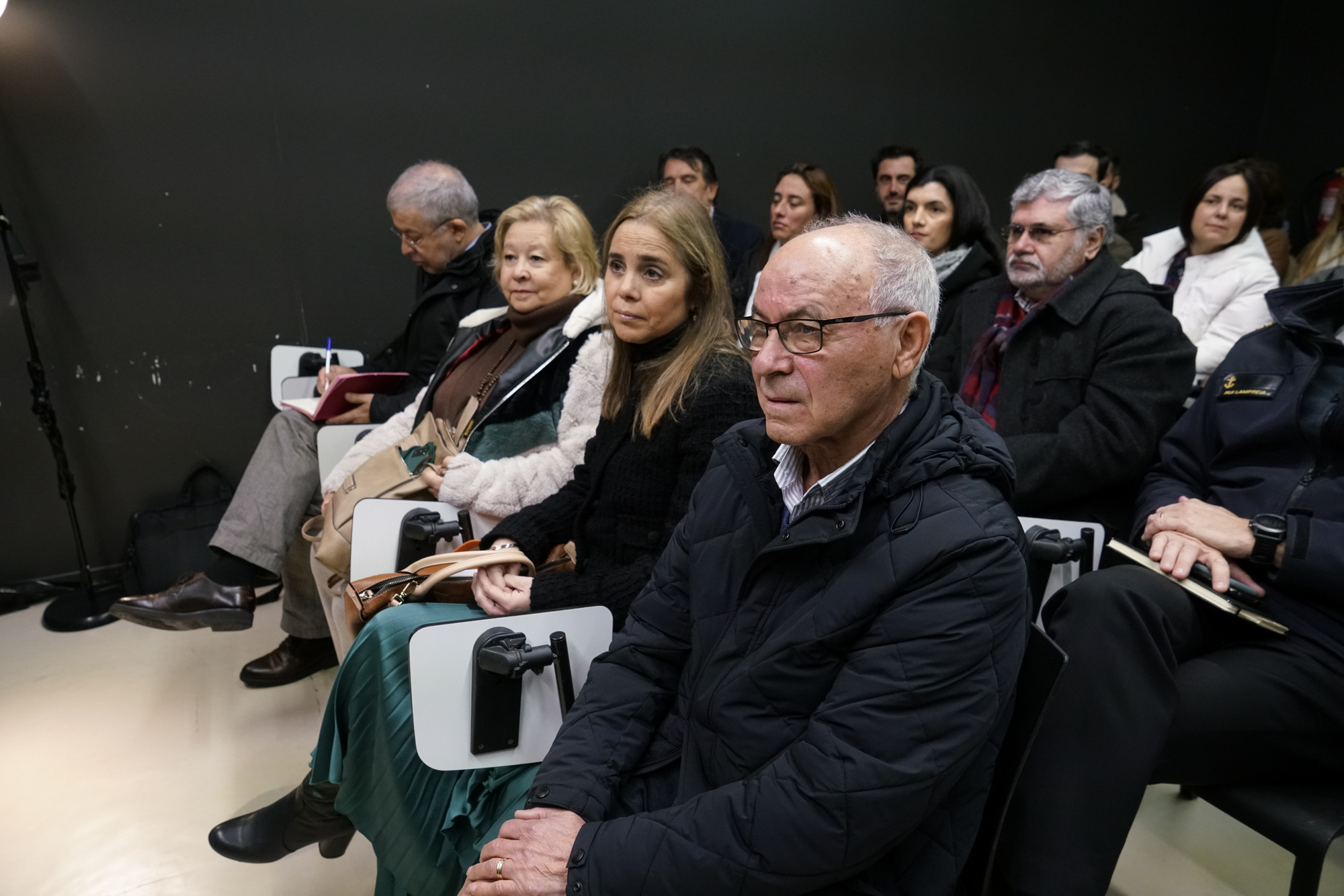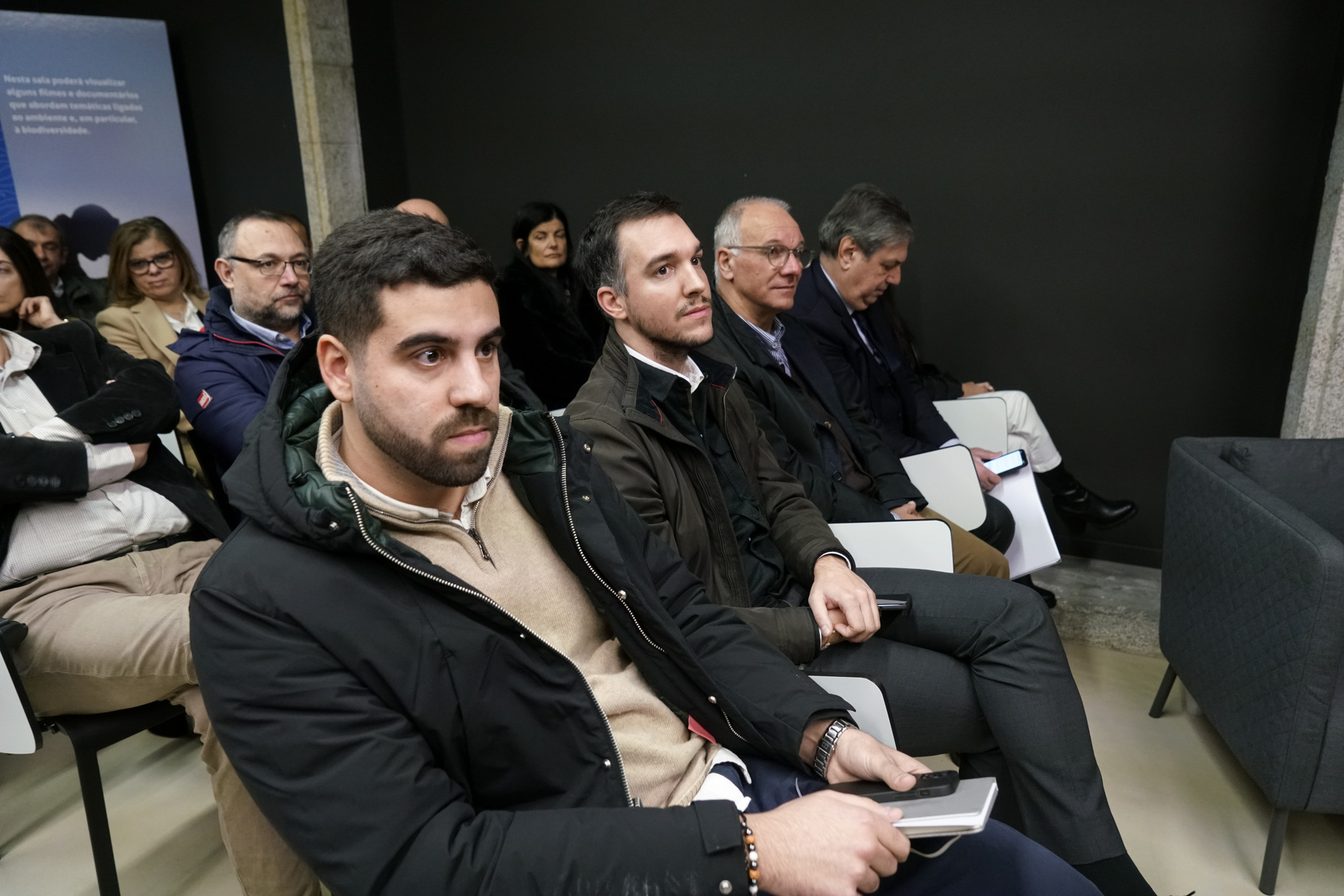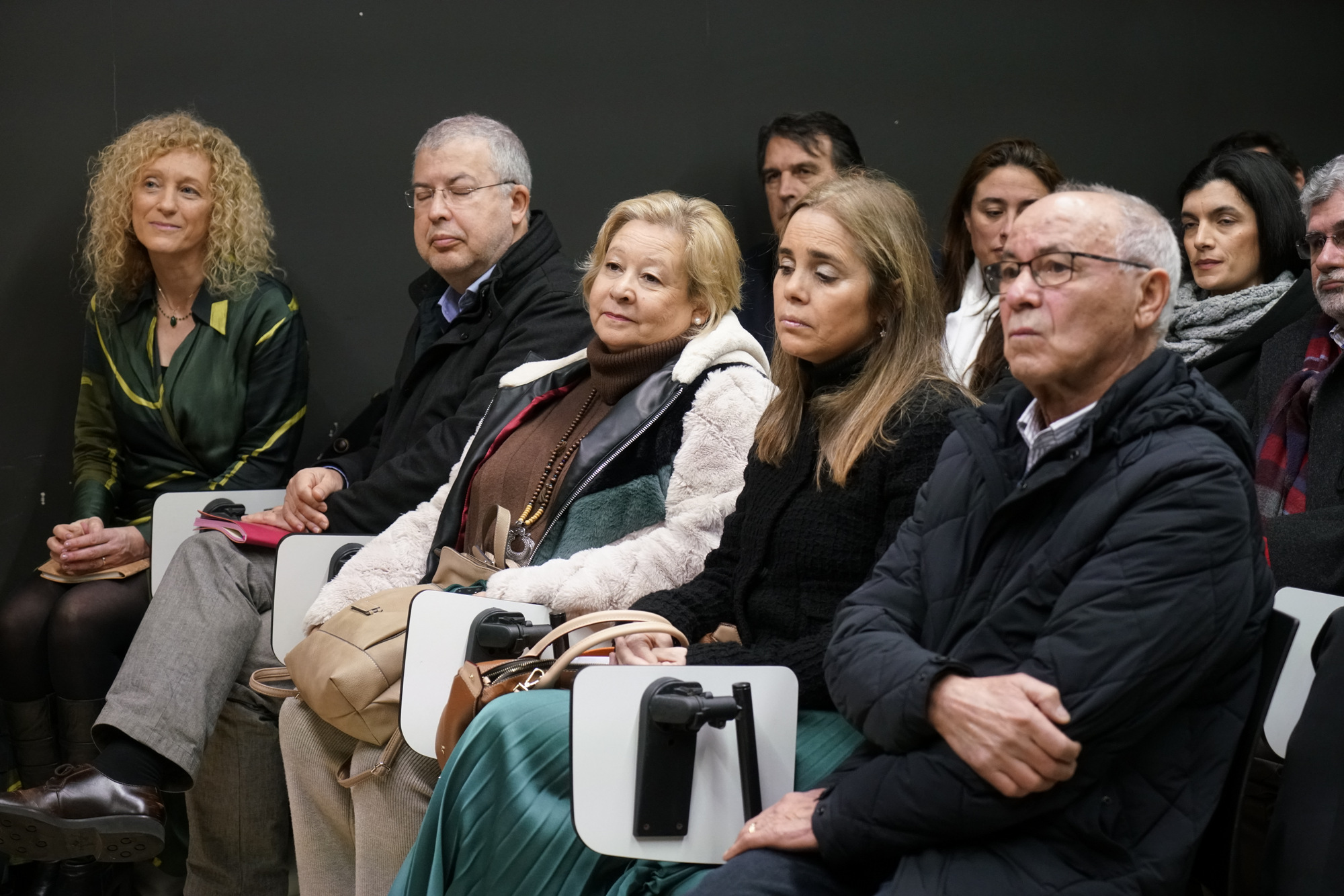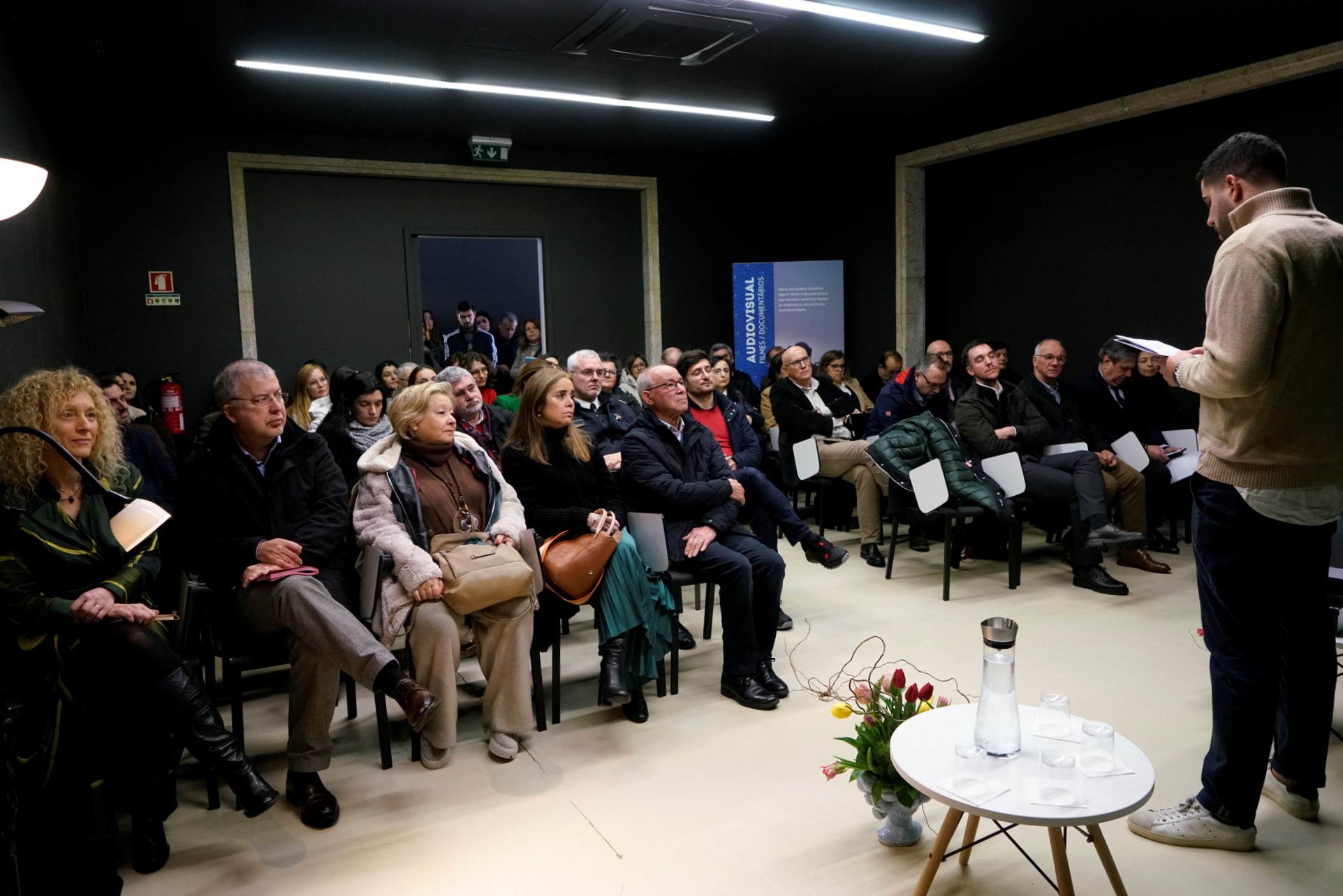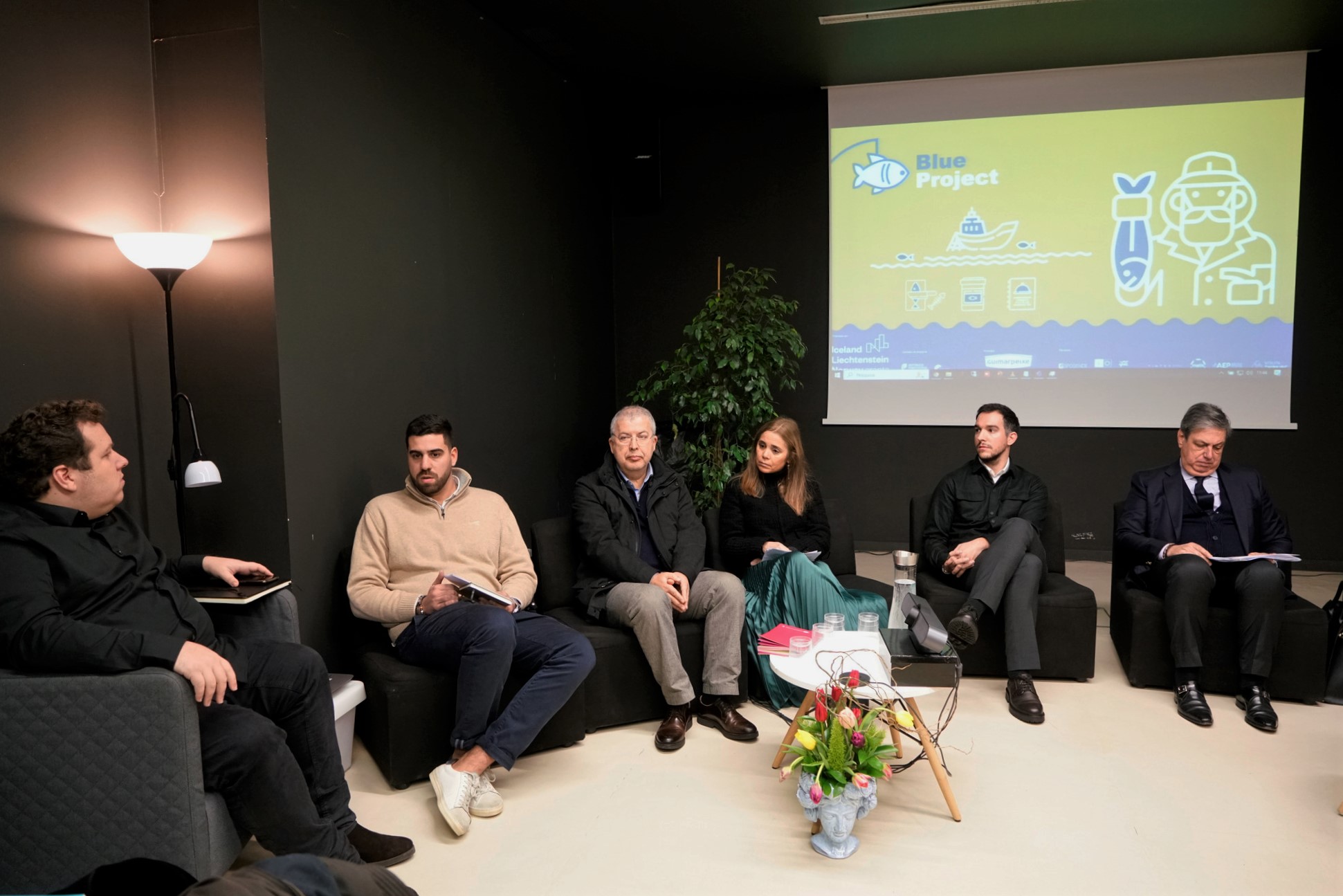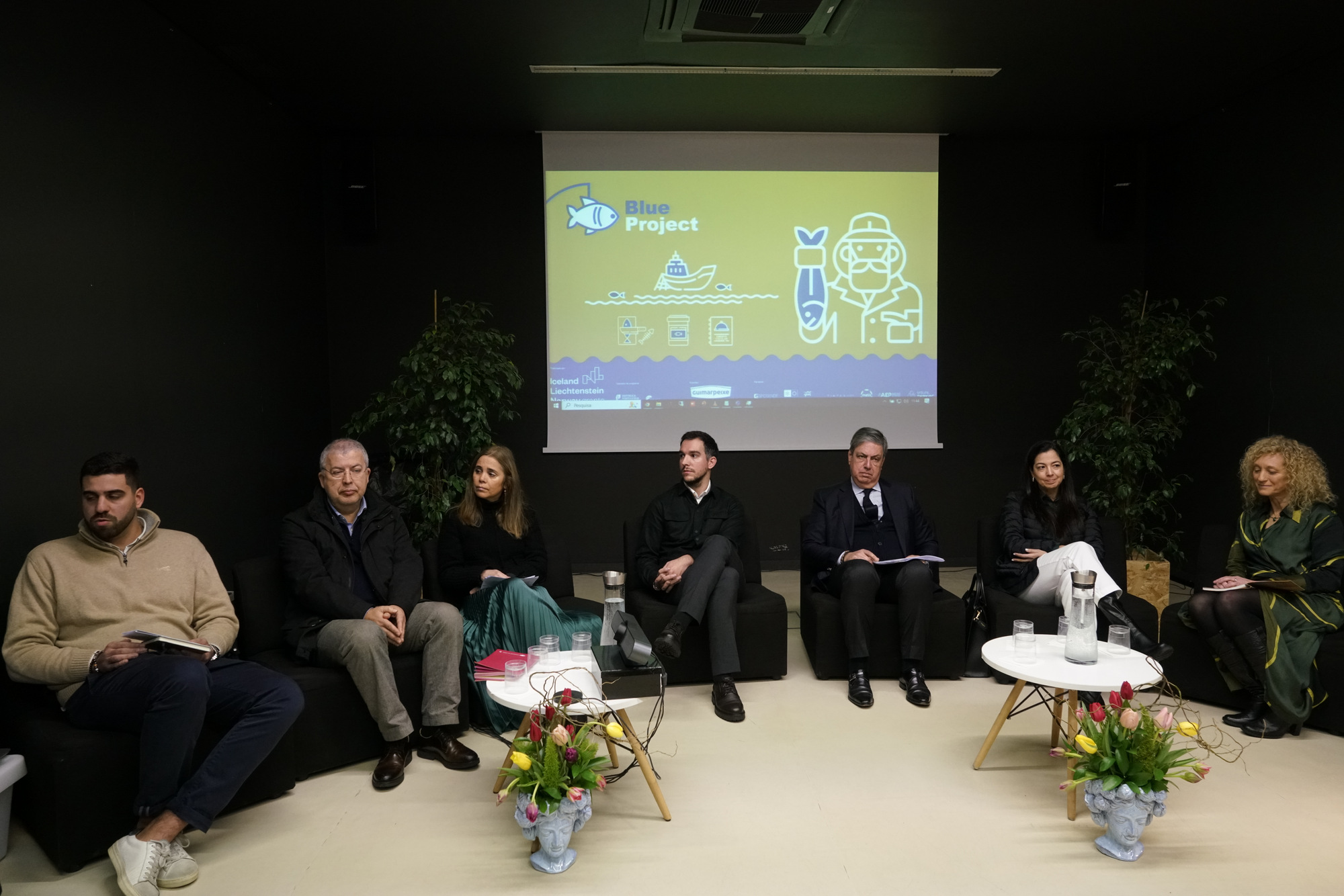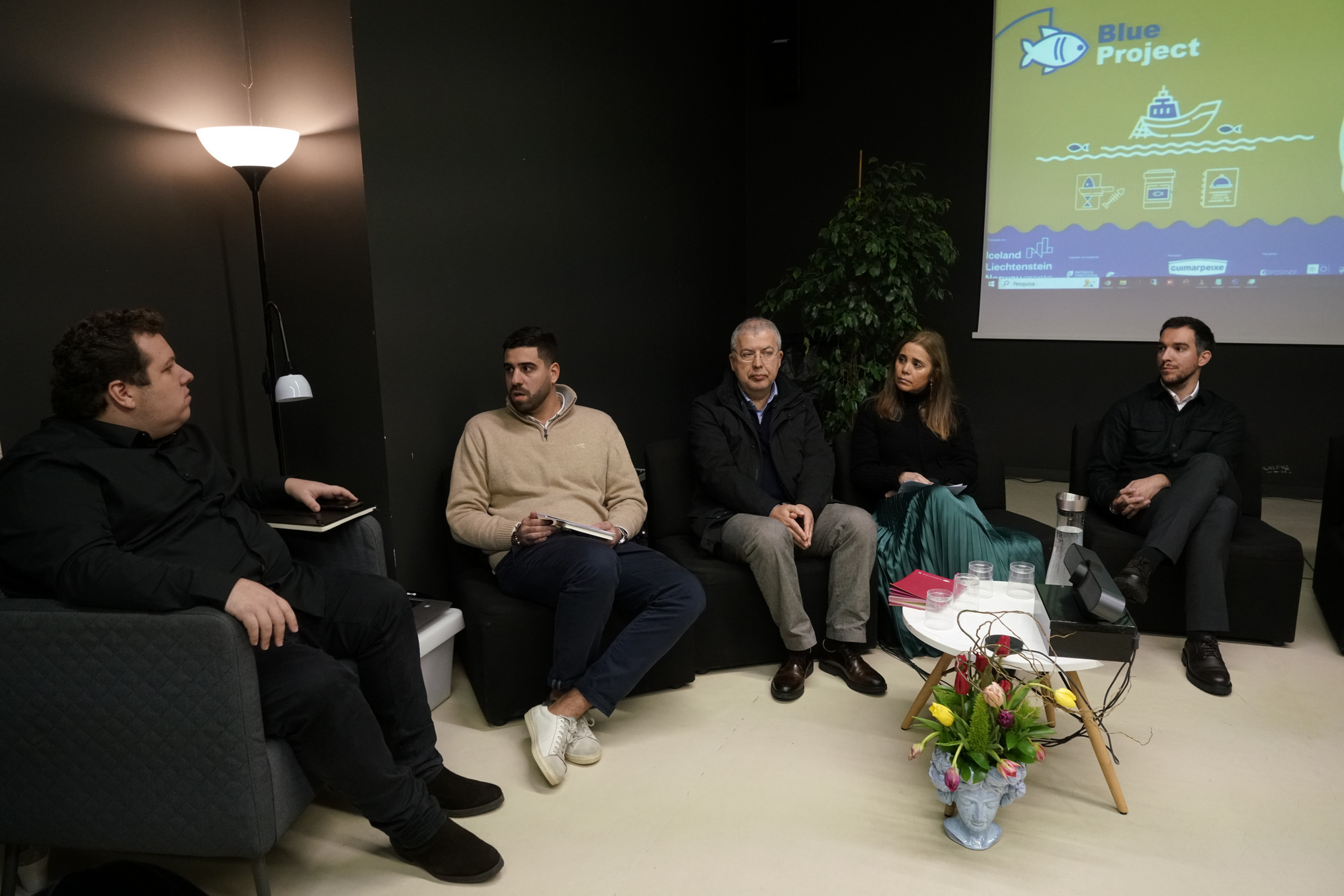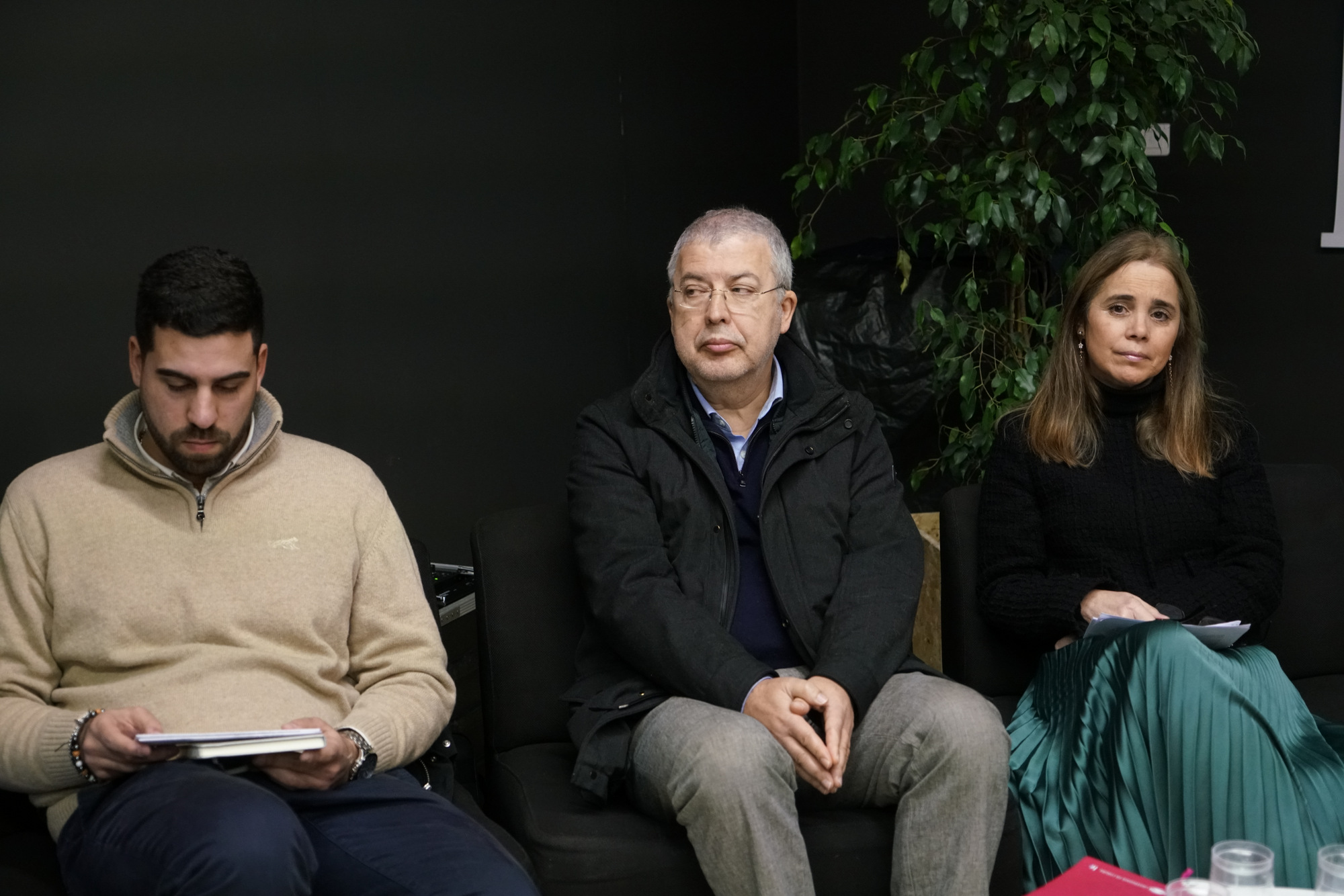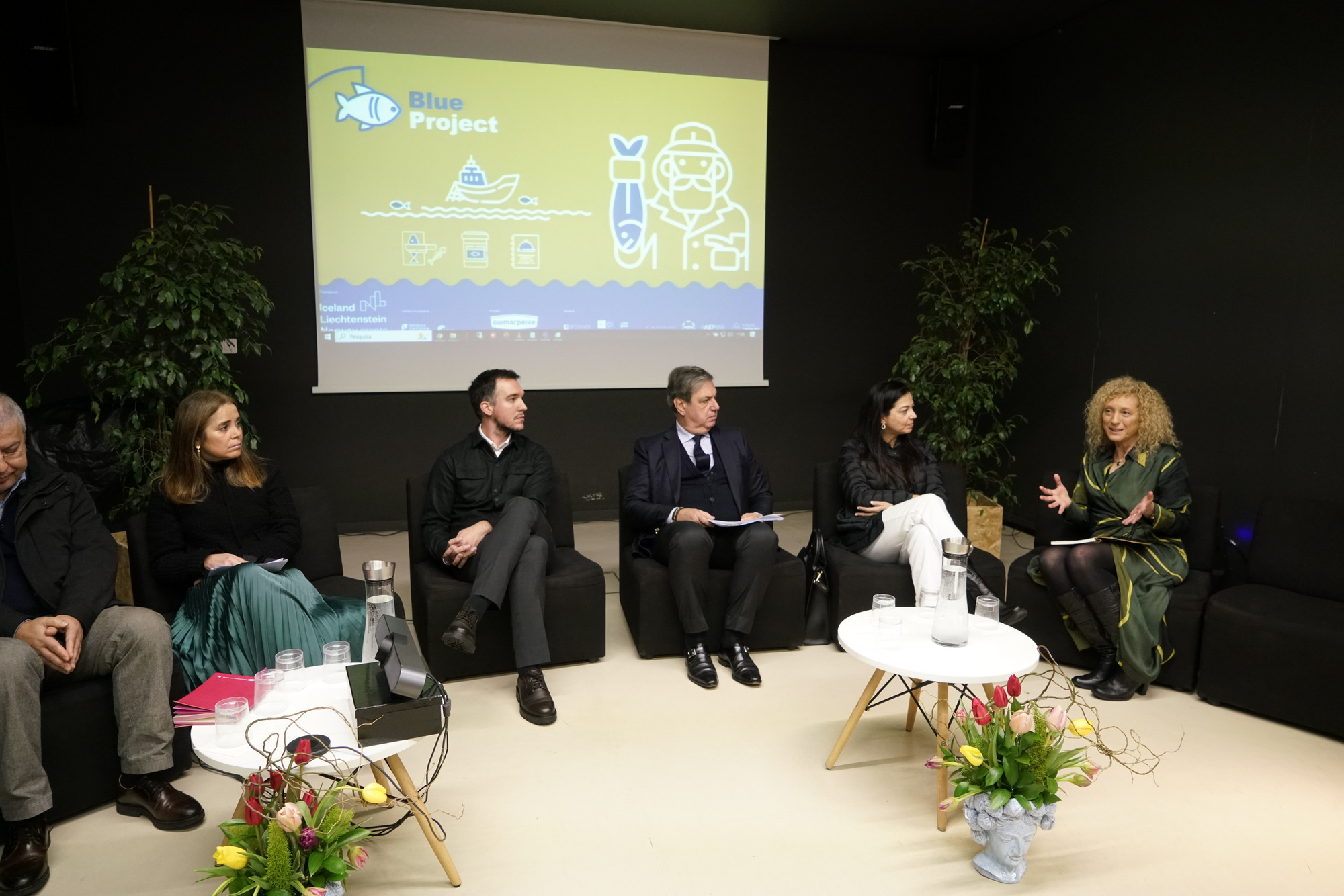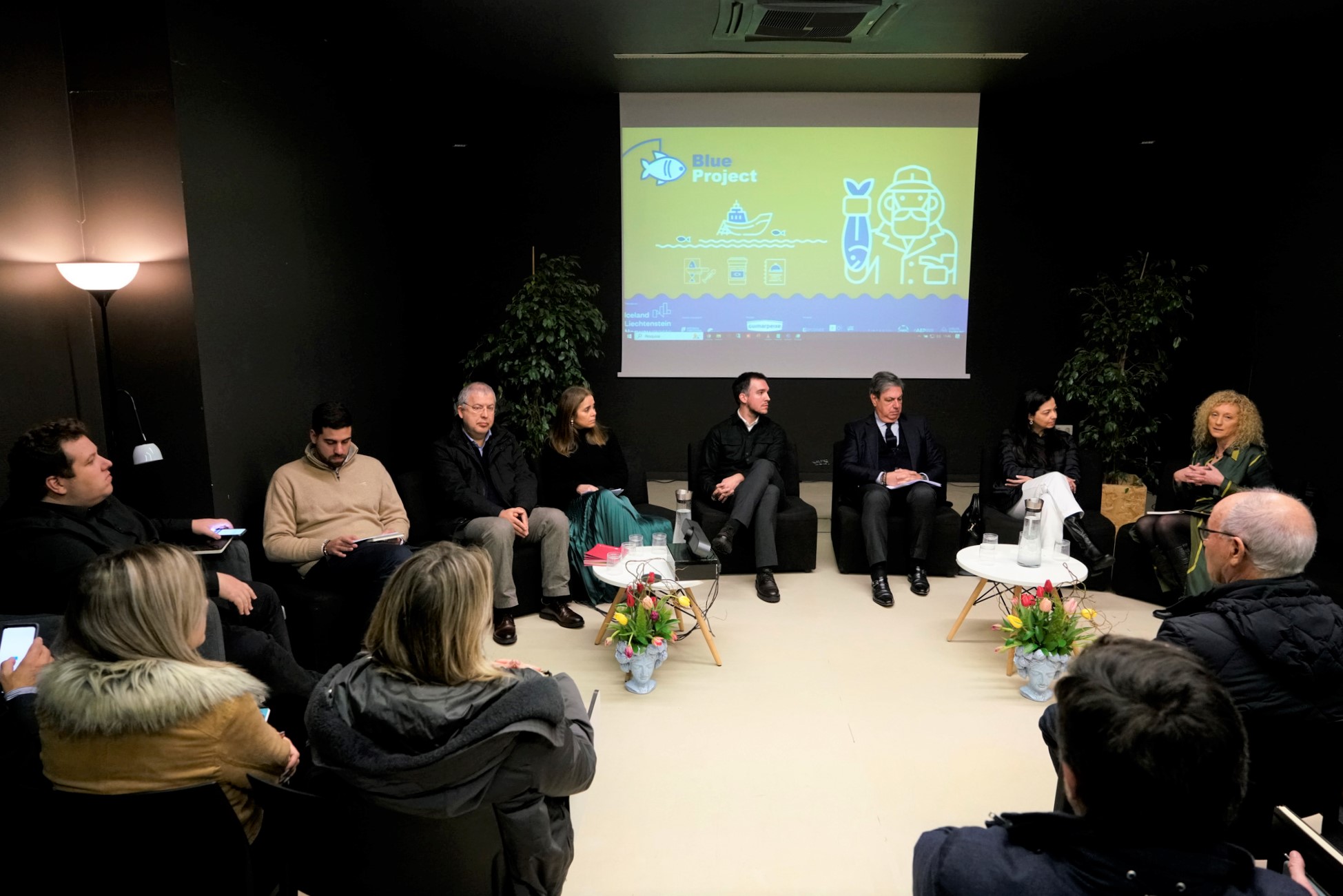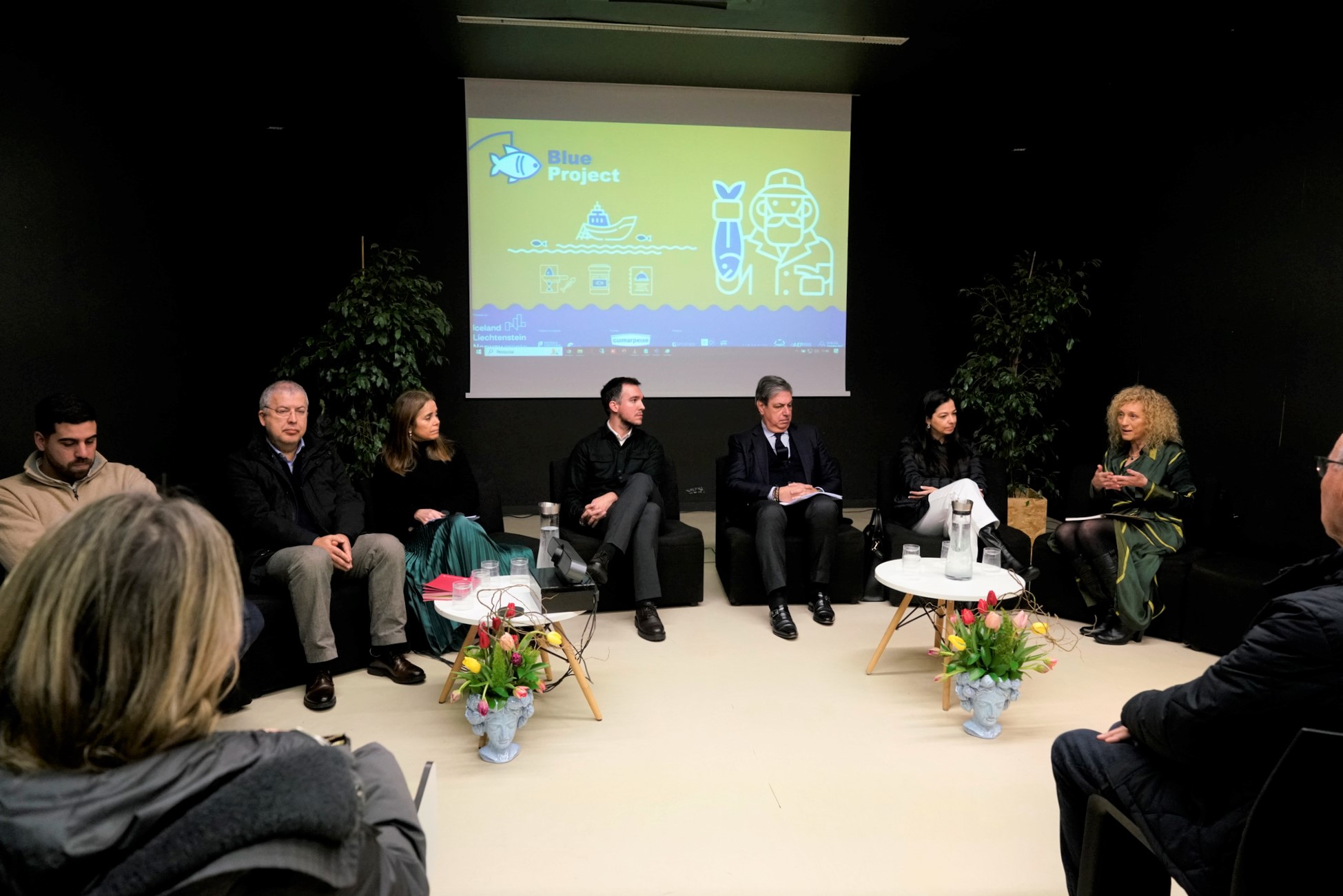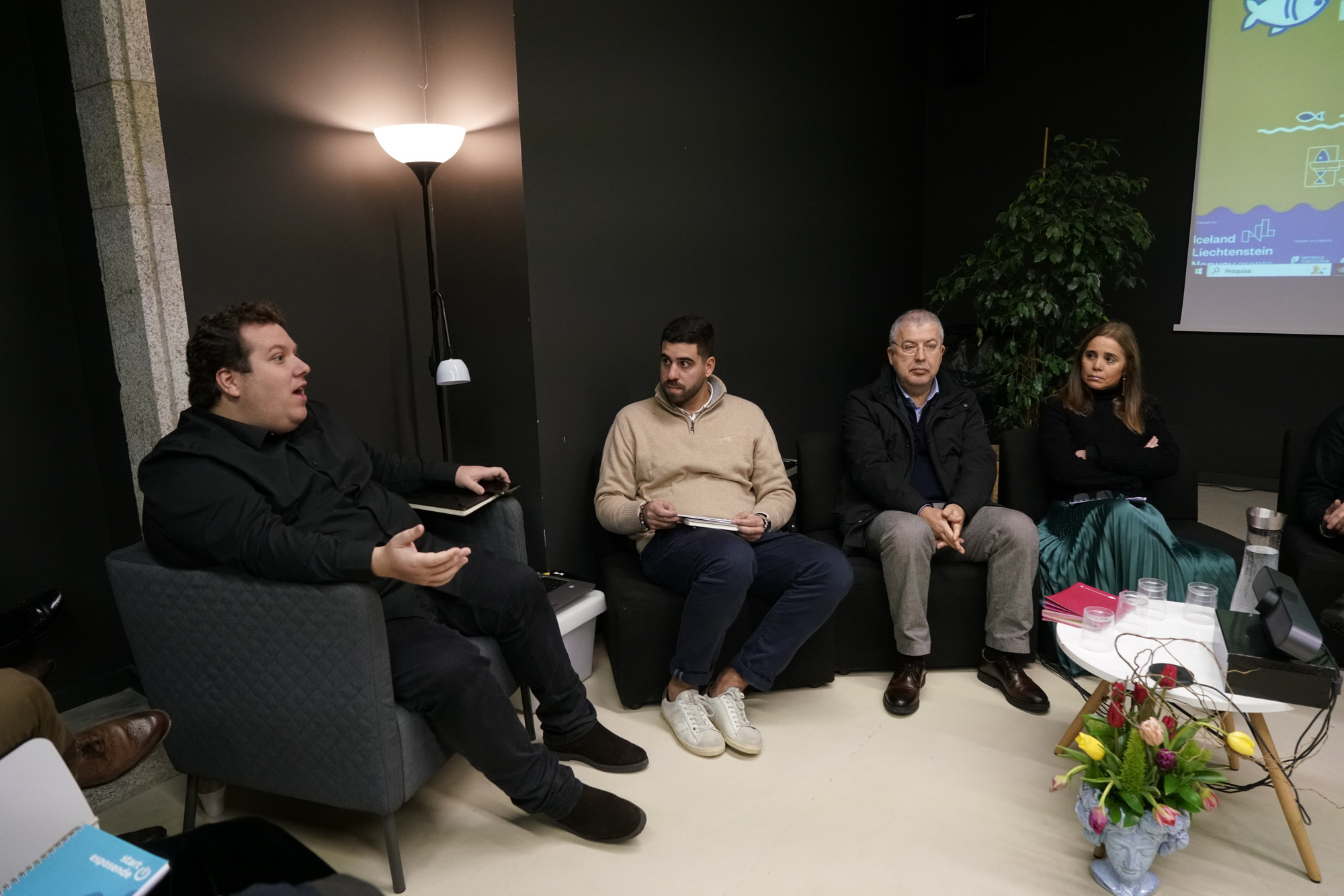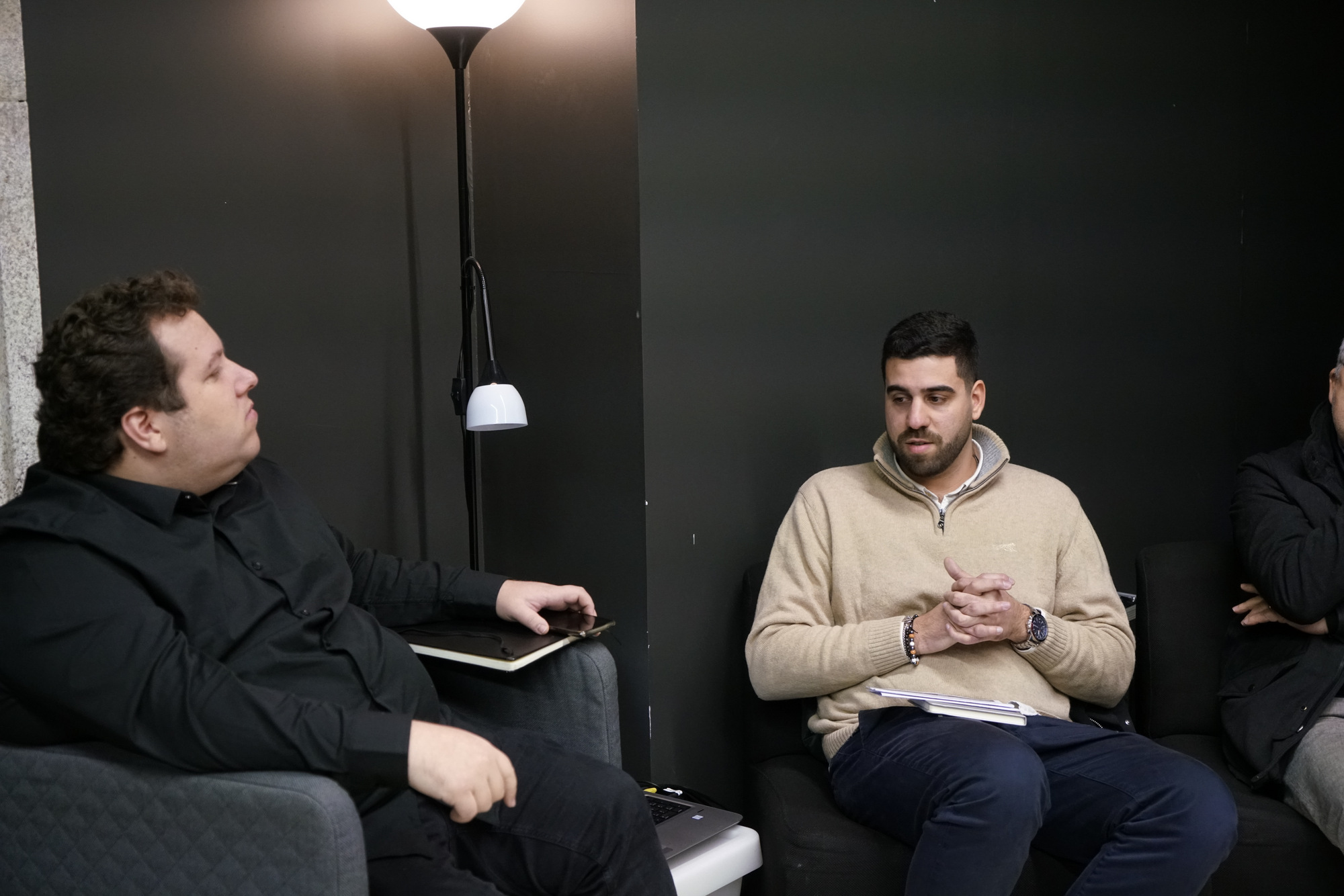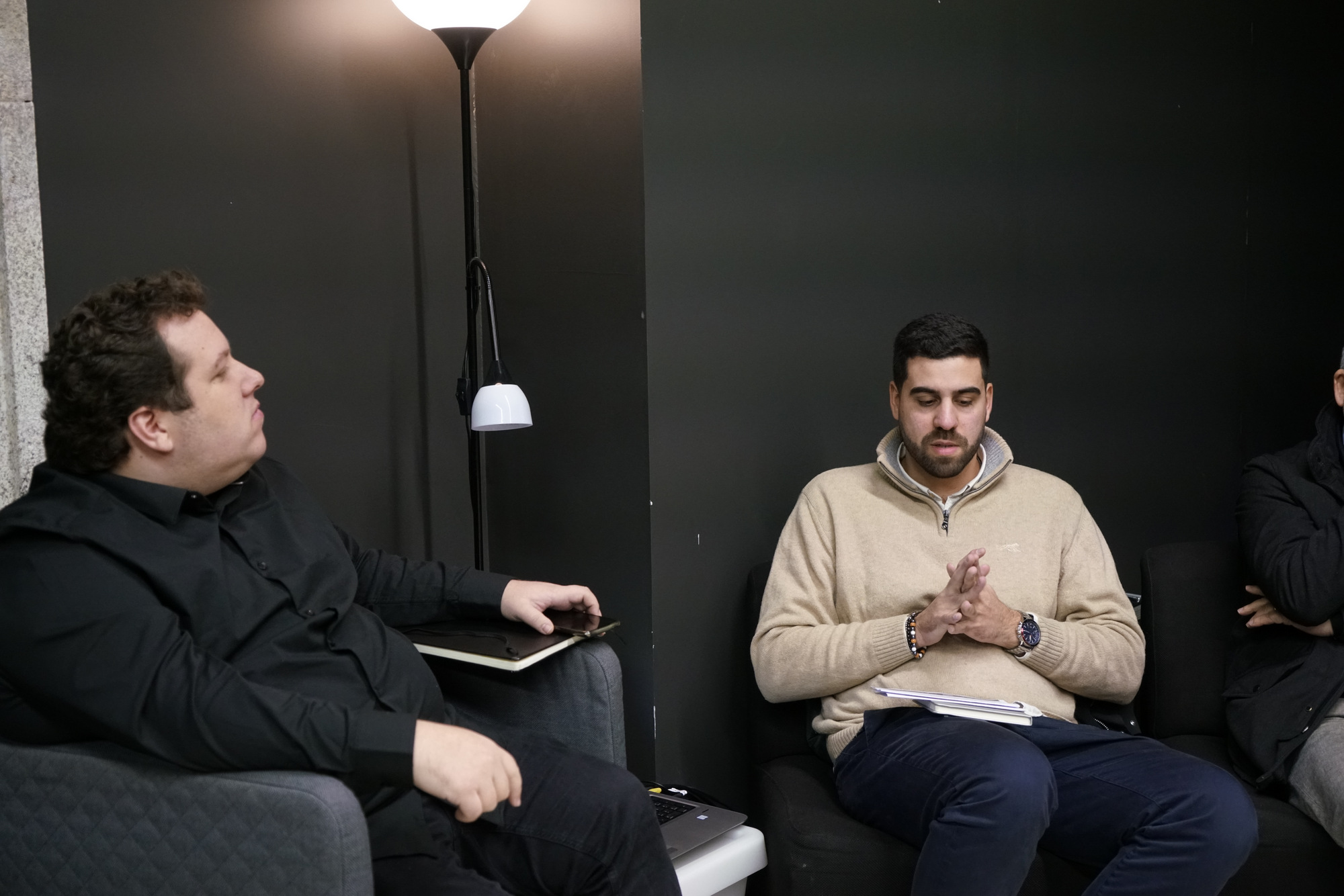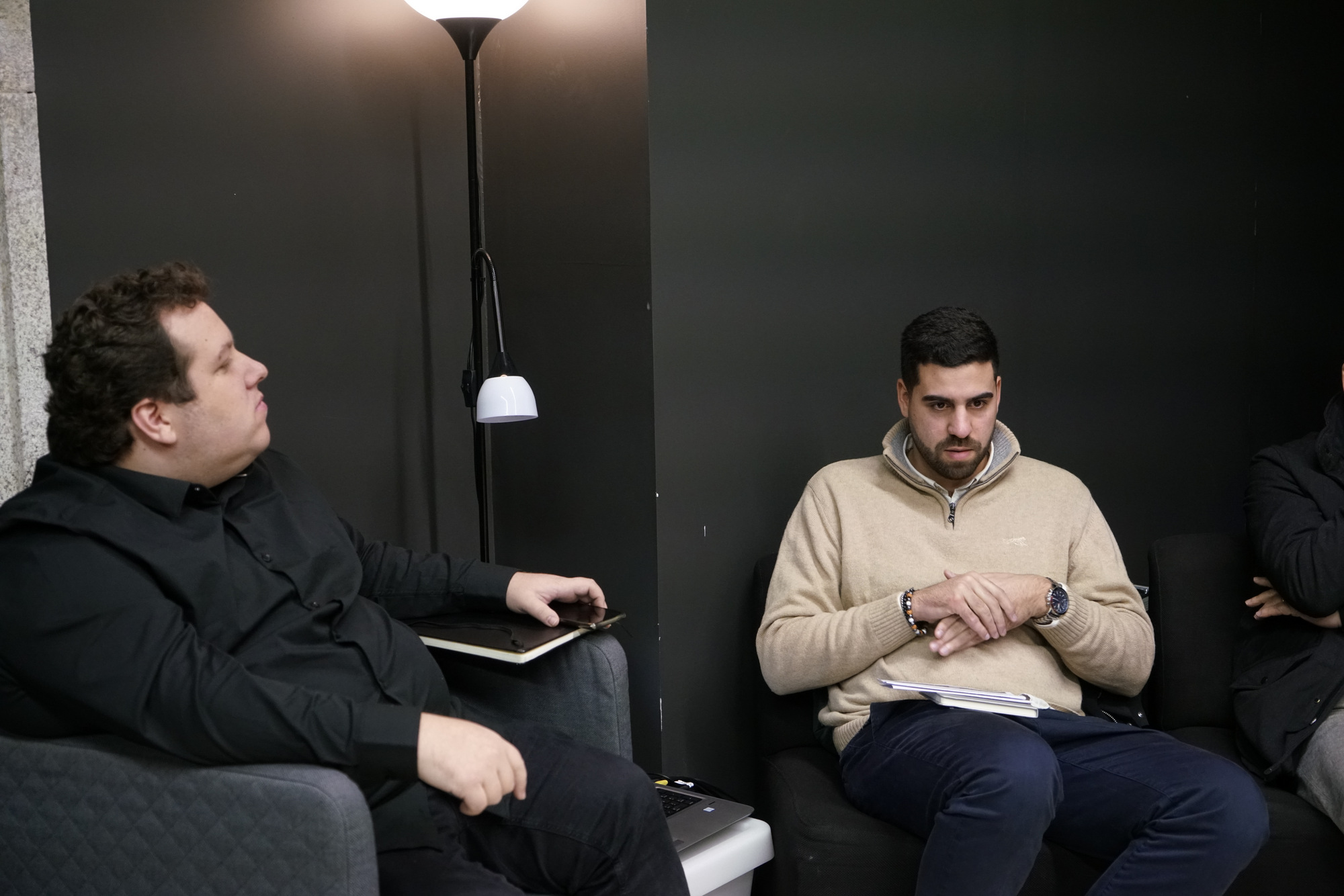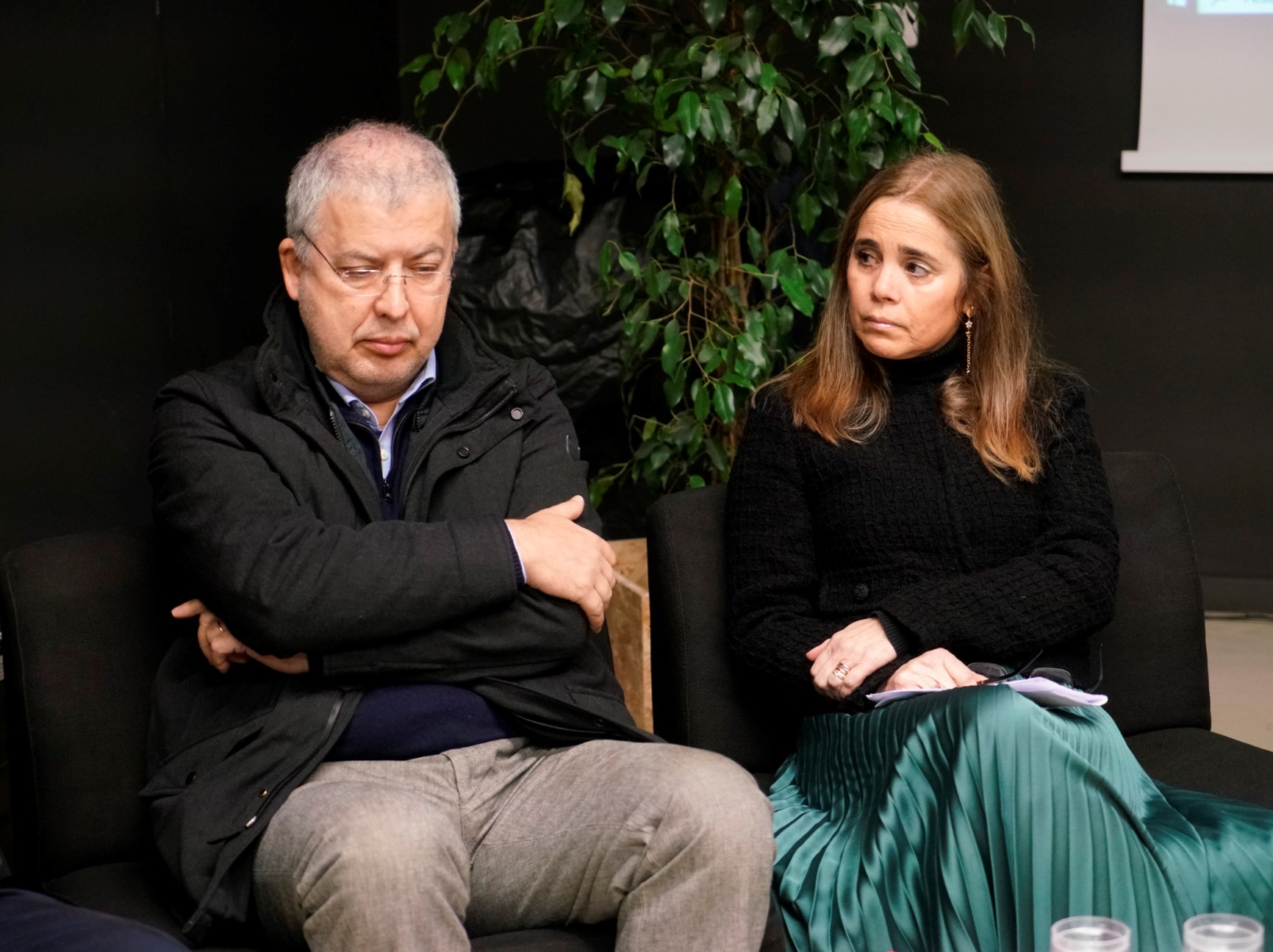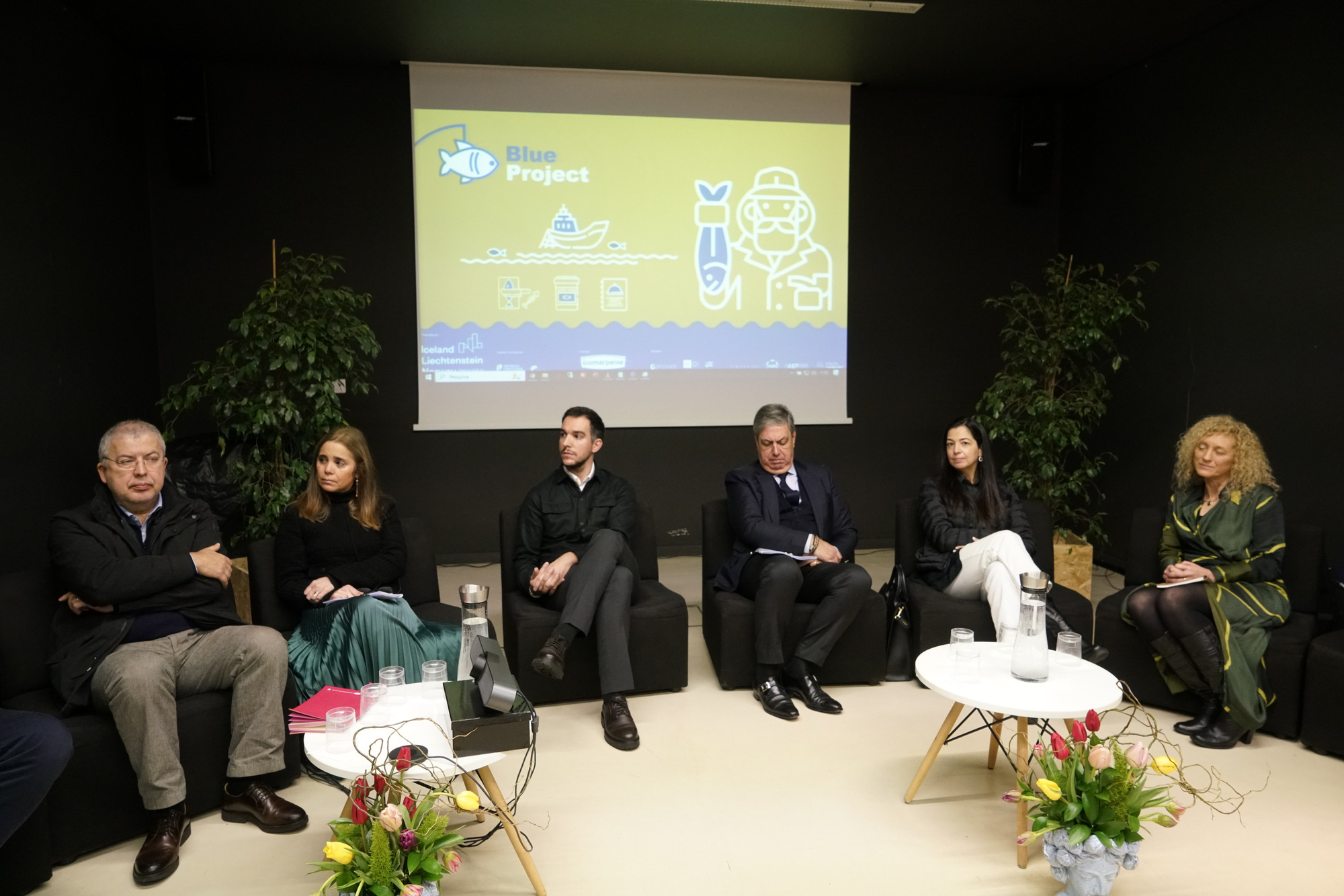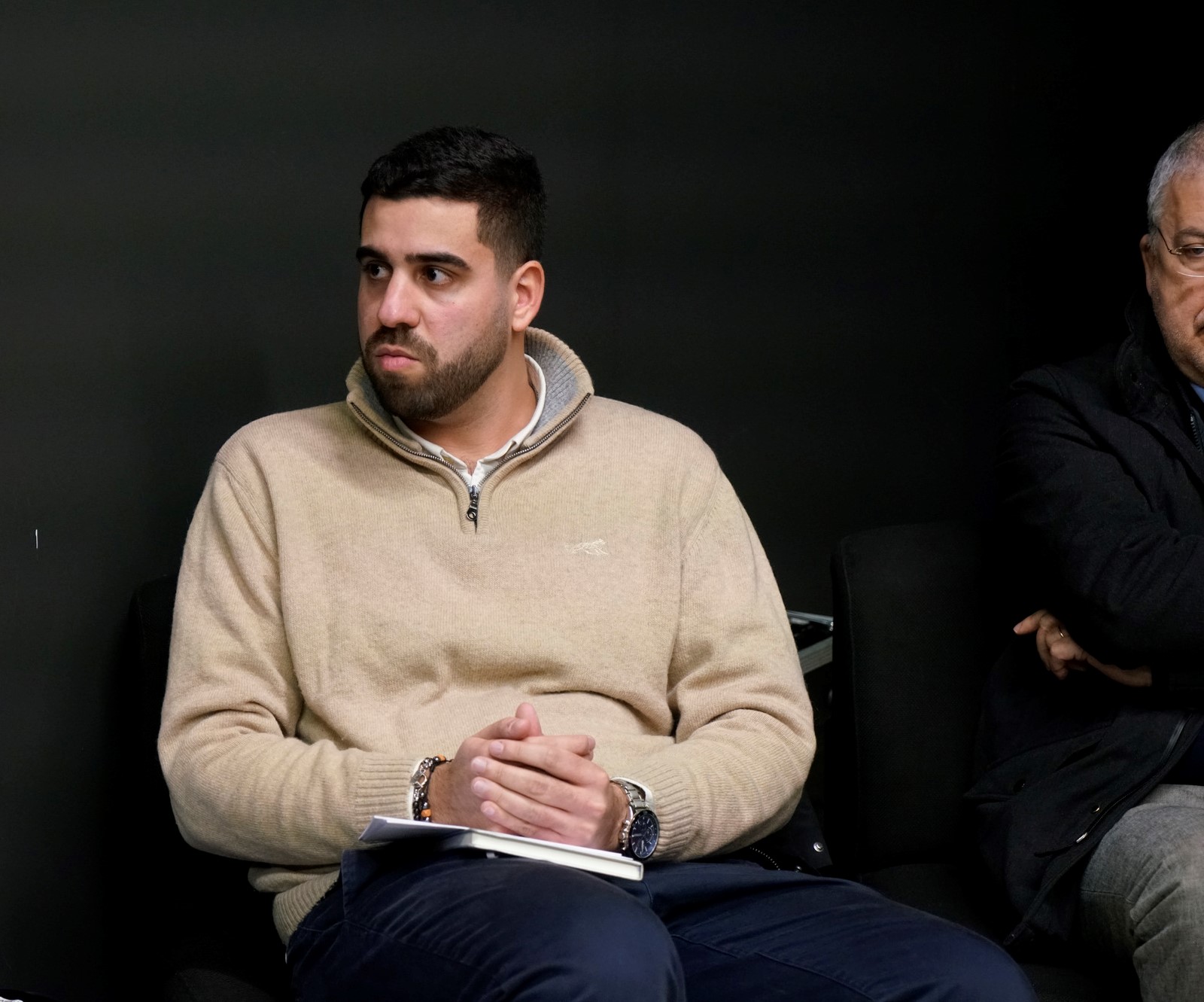30/04/2024 ● Blue Project International Congress
30/04/2024 ● Environmental Sustainability Workshop
08/04/2024 ● Partner Entity Matís Visits Portugal
08/04/2024 ● Food Safety and Public Health Value Workshop
27/03/2024 ● Education for Sustainability: 3 Recipes with Sarrajão

In addition to being nutritious and affordable, Sarrajão is a delicious option for your meals. Here are 3 easy-to-prepare recipes to make at home.
Recipe 1
Grilled Sarrajão
INGREDIENTES: 1 sarrajão cut into slices, 2 sweet potatoes in quarters, 4 purple potatoes in quarters, 2 slices of pumpkin, lemon juice, Salt (q.b.), 1 drizzle of olive oil, rosemary and thyme.
EXECUTION: On the tray, place the potatoes and pumpkin, drizzle with olive oil and sprinkle with salt. Season with rosemary and thyme leaves to taste and bake until tender and cooked. On the grill, add a drizzle of olive oil and place the sarrajão slices. Grill until golden on both sides.
Receita 2
Baked sarrajão with potatoes and parsley sauce
INGREDIENTES: 1.5 to 2kg of sarrajão, 1kg of new potatoes, 1 tablespoon of paprika, 2 stems of thyme, salt, olive oil and black pepper.
EXECUTION: Make two cuts in the fish's loins, season with salt and grease with a drizzle of olive oil. Place the fish in a baking dish and set aside. Wash the potatoes, keeping them whole and unpeeled. Place in a bowl and add the paprika, thyme leaves and a drizzle of olive oil. Season with salt and pepper and distribute around the fish. Bake in a preheated oven at 180º for 40 minutes. Prepare the parsley sauce. Chop the garlic and parsley. Pour into a bowl with a generous drizzle of olive oil. Reserve. Remove the roast from the oven and drizzle the fish with the parsley sauce.
Recipe 3
Fried sarrajão with rice
INGREDIENTES: 100 g of chopped onion, 2 to 3 cloves of garlic, 300 g of leaf spinach, 3 cups of water, salt, 1 cup of carolino rice, oil, 4 to 8 sarrajão slices, corn flour, 1 spoon of paprika tea, lemon.
EXECUTION: Heat the onion with the chopped garlic cloves and olive oil. Then, add the spinach leaves, cover the pan and stir from time to time. Pour boiling water over and season with salt. When it starts to boil again, add the rice, stir and cover again. Leave on low heat for 12 or 13 minutes. Meanwhile, heat a frying pan with oil, season the fish with salt and mix a handful of corn flour with the paprika. Dip the steaks in flour, shaking off the excess well. Fry the fish on both sides in the hot oil. Drain on absorbent paper. Sprinkle the rice with a few drops of lemon juice. Serve to accompany the fish, along with lemon wedges.
22/03/2024 ● Blue Project: Valor Têxtil Workshop

Blue Project partners are holding "Valor Têxtil" Workshop to explore reusing fish skin in new textile materials
On March 22nd, the Blue Project consortium partners met in an innovative workshop called "Valor Têxtil", where they not only explored the potential of reusing fish skin in the creation of new textile materials, as well as presenting the first scientific results obtained within the scope of the project.
The event took place at the Tintex Textiles facilities, and was attended by several entities linked to research, industry and sustainability.
This initiative provided a comprehensive and enriching experience for all participants. The agenda included a guided tour of the Tintex Textiles facilities, where participants were able to observe the textile production process and the technologies used up close.
Next, the results achieved by the research institutions UM (University of Minho) and IPVC (Instituto Politécnico de Viana do Castelo) were presented, highlighting the significant advances in the area of reusing fish skin and creating new sustainable textile materials.
12/02/2024 ● Oceans: 10 challenges for collective impact by 2030

Human beings have an important role when it comes to environmental safeguards, and the preservation of biodiversity depends on the collective action of society and States. Discover the 10 challenges proposed by the United Nations until 2030.
Challenge 1
Understanding and overcoming marine pollution
Understand and map terrestrial and marine sources of pollutants and contaminants and their potential impacts on human health and ocean ecosystems and develop solutions to remove or mitigate them.
Challenge 2
Protect and restore ecosystems and biodiversity
Understand the effects of multiple stressors on ocean ecosystems, and develop solutions to monitor, protect, manage and restore ecosystems and their biodiversity under changing environmental, social and climatic conditions.
Challenge 3
Sustainably feeding the global population
Generate knowledge, support innovation, and develop solutions to optimize the role of the ocean in sustainably feeding the world's population under changing environmental, social, and climatic conditions.
Challenge 4
Develop a sustainable and equitable ocean economy
Support innovation and develop solutions for the equitable and sustainable development of the ocean economy under changing environmental, social and climate conditions.
Challenge 5
Unlock ocean-based solutions to climate change
Improve understanding of the ocean-climate nexus and generate knowledge and solutions to mitigate, adapt and build resilience to the effects of climate change across all geographies and at all scales, and improve services including predictions for the ocean, climate and weather.
Challenge 6
Increase community resilience to ocean risks
Improve multi-hazard early warning services for all ocean and coastal-related geophysical, ecological, biological, climate and anthropogenic hazards, as well as community preparedness and resilience.
Challenge 7
Expand the Global Ocean Observing System
Ensure a sustainable ocean observation system across all ocean basins that provides accessible, timely and actionable data and information to all users.
Challenge 8
Create a digital representation of the ocean
Through multi-stakeholder collaboration, develop a comprehensive digital representation of the ocean, including a dynamic ocean map, that provides free and open access to explore, discover and visualize the past, present and future conditions of the ocean in a way that is relevant to diverse stakeholders.
Challenge 9
Skills, knowledge and technology for everyone
Ensure comprehensive capacity development and equitable access to data, information, knowledge and technology across all aspects of ocean science and for all stakeholders.
Challenge 10
Changing humanity’s relationship with the ocean
Ensure that the ocean's multiple values and services for human well-being, culture and sustainable development are widely understood, and identify and overcome barriers to behavioral change necessary for a gradual shift in humanity's relationship with the ocean.
29/01/2024 ● What is the EEZ (Exclusive Economic Zone?)

With a coastline of around 2500 km, Portugal is a country with marine traditions, and finds in the ocean a source of opportunities that play a relevant role in the country's economy and development.
The EEZ (Exclusive Economic Zone) is vital to the sovereignty of our country, and plays a crucial role in promoting marine sustainability and responsible resource management.
The Exclusive Economic Zone corresponds to the maritime zone that extends up to 200 miles from the coastline and over which the riparian States have rights and responsibilities. It is around 1,700,000 km2 (around 18x the country's area) and represents 48% of all marine waters under the jurisdiction of the European Union. The Portuguese EEZ occupies 3rd place in the ranking of countries with the largest area in the European Union.
24/11/2023 ● Ephemeride - 24th November | National Scientific Culture Day

In connection with National Scientific Culture Day, celebrated on November 24th, Blue Project highlights the fundamental role of scientists and technicians in the production of scientific evidence, which allows guiding the definition of public protection policies of our marine environment.
Through the scientific research work developed by researchers from IPVC (Polytechnic Institute of Viana do Castelo) and UM (University of Minho), the project has been able to obtain fundamental data to guide the definition of public policies aimed at protecting the marine environment of the Portuguese coast.
17/11/2023 ● Ephemeride - 17th November | National Sea Day + Blue Talk

Blue Project joined the celebrations around National Sea Day, praising the importance of maritime economic activity for sustainable national development.
In this regard, the members of the consortium came together in a joint initiative, which aimed to present the results of the work carried out.
This event represents a significant milestone in Blue Project's ongoing commitment to promoting sustainability and preservation of marine resources.
18/01/2023 ● Blue Project launched 18th January
This project, which is promoted by Guimarpeixe, which integrates the industrial component in the area of food technology, also involves Tintex which, in the textile area, will promote the use of waste in the manufacture of textile materials, the University of Minho and the Instituto Polytechnic of Viana do Castelo, continuing the partnership they maintain with the Municipality and which is now embodied in this project in the scientific development component, with direct transfer of knowledge and its applicability to everyday life. This consortium also includes Associação Empresarial de Portugal and Visual Thinking, as well as Matis, a public body in Iceland that supports the project with contributions in the area of food safety and public health.
The Blue Project is part of a broader strategy, which includes the Food Sustainability Project – Generation S, conceived and promoted by the Municipality and which seeks to encourage and promote the consumption of local products, namely fish and vegetables, from a perspective of sustainable consumption , applied in the context of school canteens, but foreseeing that this could be a precursor to later be extended to the community in general.
Tendo por base uma candidatura apresentada ao Programa Crescimento Azul, este projeto tem como objetivos a criação de produtos inovadores, nomeadamente na área têxtil, a possibilidade de registo de patentes e outros mecanismos de propriedade intelectual que possam vir a surgir no âmbito do trabalho científico realizado e da sua transferência para o contexto industrial, bem como o desenvolvimento de processos de tecnologia alimentar inovadores e mais sustentáveis, nomeadamente no que se refere a métodos de conservação.
Based on an application submitted to the Blue Growth Programme, this project aims to create innovative products, namely in the textile area, the possibility of registering patents and other intellectual property mechanisms that may arise within the scope of the scientific work carried out. and its transfer to the industrial context, as well as the development of innovative and more sustainable food technology processes, namely with regard to preservation methods.
Educating for sustainability is promoting a change in attitudes and behavior in the face of the problems of today's world, in order to prepare, for the future, citizens who are more capable of exercising conscious, dynamic and informed citizenship in the face of current problems. In this context, and fully integrated with the emerging environmental concerns, the Municipality of Esposende recognizes that health and the promotion of well-being must occupy a central place in the policies of territories and communities, since they are translated into preponderant factors for the its sustainable development. Indeed, without healthy and happy people, development is limited.
The session, representing the City Council, was attended by the Vice-President Alexandra Roeger, who highlighted the enormous relevance of this project, namely the innovative component associated with it. He noted the relevant work that the Municipality has been developing in terms of food sustainability, a strategy aligned with the goals of the Sustainable Development Goals (SDGs) of the UN 2030 Agenda, and thanked the contribution of the various partners involved. Also noteworthy was the intervention of Guimarpeixe, as promoter of the project, which highlighted the work carried out by this company over the years in the food industry and how much this challenge constitutes a business opportunity and can contribute to a new positioning in terms of strategic, in a new line of market.
After the presentation of the project, a round table was held, under the theme “Blue Project, a more sustainable future”, with the participation of João Ribeiro da Guimarpeixe, Vice-Rector of the University of Minho Eugénio Ferreira, Rita Pinheiro from the Polytechnic Institute of Viana do Castelo, Pedro Silva from Tintex, Paulo Vaz from Associação Empresarial de Portugal and Estela Bastos from Visual Thinking.

